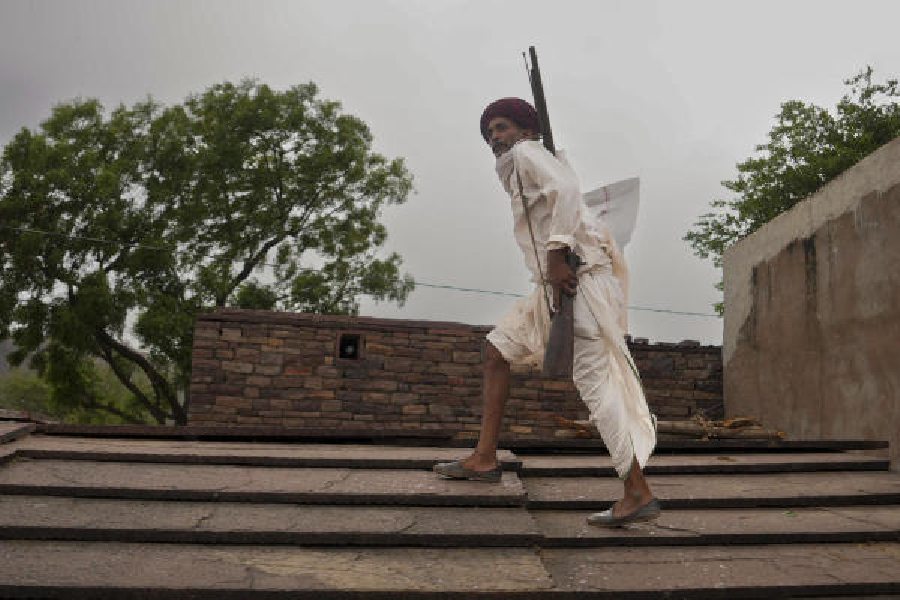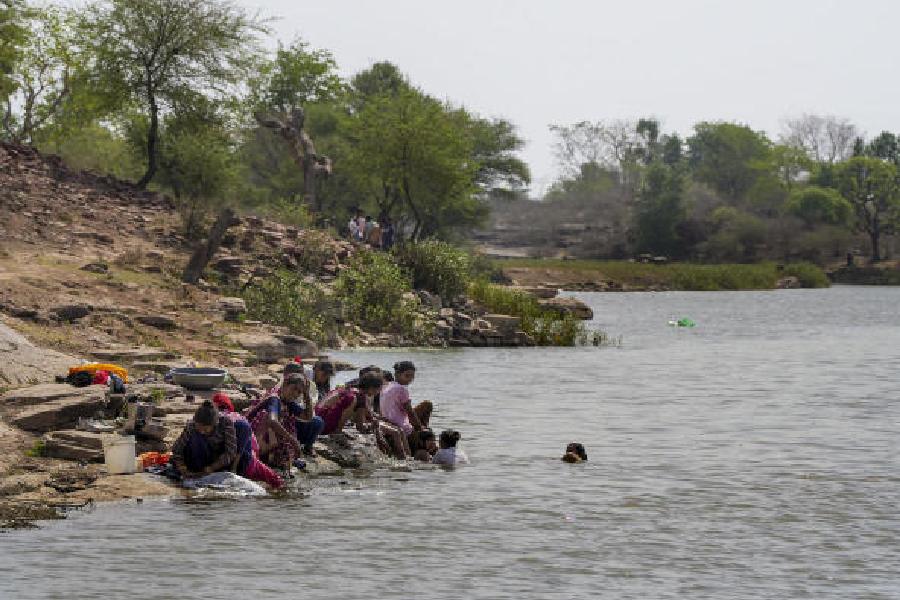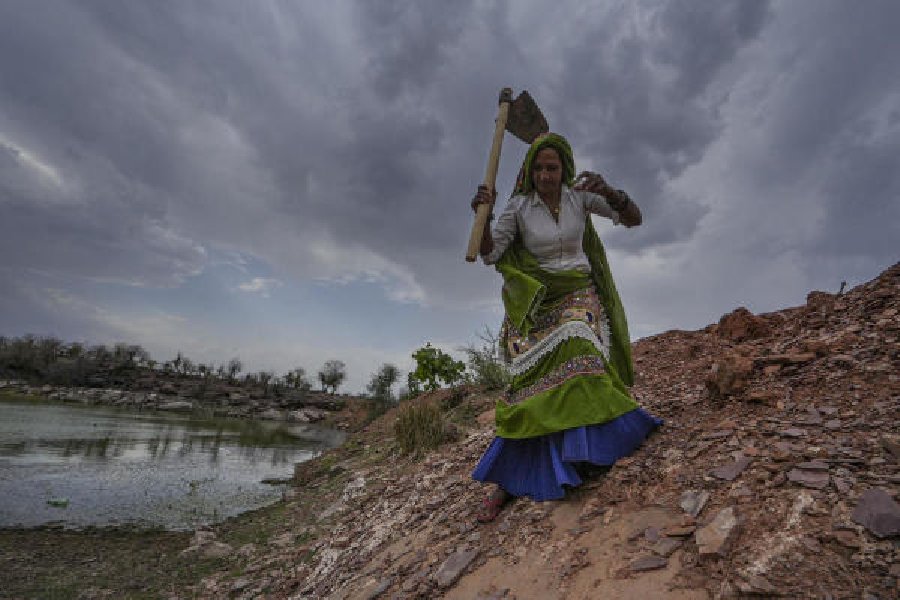Until about 15 years ago, Sampatti Devi and many women like her in Rajasthan's Karauli district lived in constant fear, dreading the day their husbands might not return home.
Repeated droughts, driven in part by declining rainfall linked to climate change, had turned their land barren. Water sources dried up, crippling agriculture and animal husbandry, the lifeblood of their livelihood.
With no other way to survive, many men were forced into dacoity, hiding in jungles and risking their lives every day to evade the police. Karauli's average annual rainfall dropped from 722.1mm (1951-2000) to 563.94mm (2001-2011), according to government data.
But in the 2010s, something remarkable happened. The women, weary of fear and despair, resolved to reclaim their lives. They convinced their husbands to come out of the jungle and give up arms.
Together, they began reviving old, dried-up ponds and constructing new pokhars (water bodies) with the help of the Tarun Bharat Sangh (TBS), an Alwar-based NGO dedicated to water conservation since 1975.
"I would have been dead by now. She convinced me to come back and start farming again," recalls Jagdish, Sampatti Devi's husband, now 58, who surrendered his weapons and chose peace.

Sampatti Devi’s husband Jagdish, who gave up arms and started farming PTI
Pooling every penny earned over the years by selling milk, they built a pokhar at the base of a hill near their village, Alampur, in 2015–16.
When the rains came, the pokhar filled and for the first time in years, their family had water, enough to sustain them for a longer period.
"Now, we grow mustard, wheat, pearl millet and vegetables," says Sampatti Devi. She even rents it out for water chestnut cultivation, earning about ₹1 lakh each season.
Over the years, 16 such pokhars have been built in the surrounding forest, each capturing runoff from the slopes. Diesel pumps now lift water to irrigate fields.
Karauli, once among Rajasthan's worst-hit dacoit areas, witnessed a transformation.
"With water, stability is returning," says Karauli superintendent of police Brijesh Jyoti Upadhyay.
Community-led water conservation revived groundwater, sparked hope and renewed farming opportunities.
Sumit Dookia, an associate professor at Guru Gobind Singh Indraprastha University and a Rajasthan native, says the Chambal region's rocky terrain hastens rainwater runoff, limiting groundwater recharge.
In Karauli, this wave of conservation has transformed the Serni, once a seasonal river, into a perennial one. Just a decade ago, the river would run dry after Diwali, leaving people desperate for water.

Women bathe and wash clothes on the banks of the once-parched Serni river PTI
"Now, the river holds water even in the peak of summer. The groundwater level has risen to just five to 10 feet below the surface," says Ranveer Singh from TBS.
Forty years ago, he says, the river flowed all year round, but overuse and climate change had drained it dry. With no options left, some men migrated to cities in search of work, while others turned to mining or dacoity.
"Illegal mining exposed them to lethal silica dust, causing silicosis, a painful and incurable lung disease. Many did not live past 40," said Rajendra Singh, a Magsaysay Award and Stockholm Water Prize-winning water conservationist who leads the TBS.
Water scarcity even disrupted marriage decisions. Families of prospective brides avoided sending daughters to this parched land, while poverty forced many Karauli parents to marry off their daughters early.
In Bhoorkheda village, where many families were forced to marry off their daughters early, 55-year-old Prem, the wife of a former dacoit, gave up four bighas of her land to build a pokhar on the village's edge. The pond has brought water to grow wheat and pearl millet and fed the families in her village.
Lajja Ram, 60, also from Bhoorkheda, admits he turned to dacoity out of desperation.
"My father was a farmer. There was enough water in his time. But as I grew up, rainfall declined, wells dried up and farming became impossible," says Lajja Ram, who once faced 40 criminal cases. It was his sister who finally persuaded him to surrender and join water conservation efforts.
Now, they grow wheat, mustard, chickpea and pearl millet on their 10 bighas of land, own eight buffalos, several goats and have enough to eat. "Ab anand hai (Now, there is happiness)," he says.










